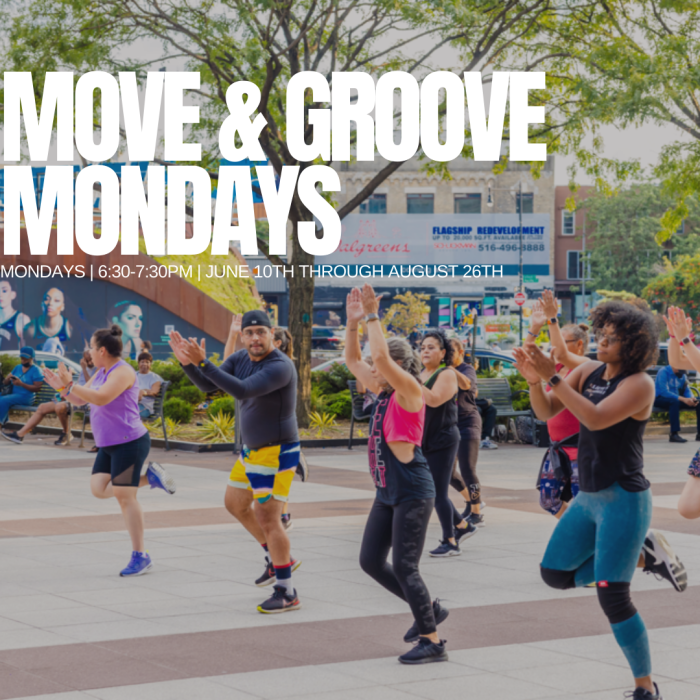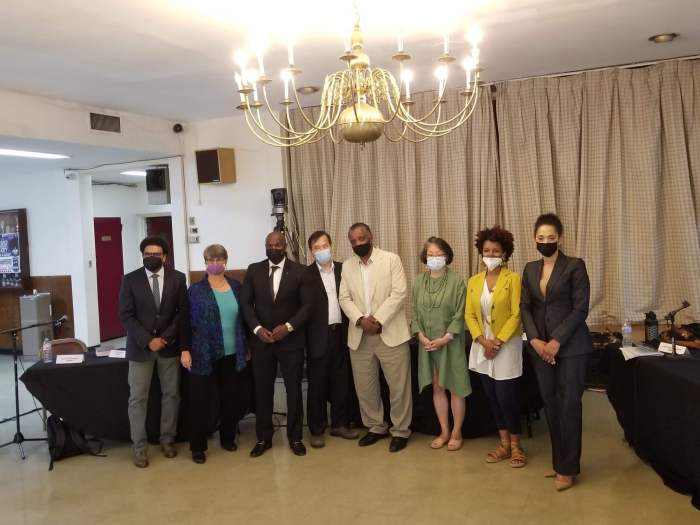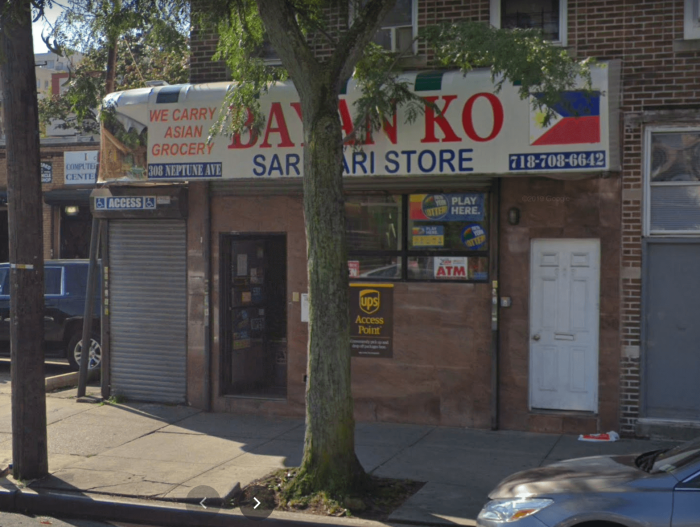Trauma, loss, loneliness, economic insecurity, racial and economic disparities, violence, political strife: these are just some of the constant threats to New Yorkers’ mental health.
One in four New Yorkers reported feeling symptoms of anxiety, depression and financial stress last year, according to a survey conducted by the New York City Health Department — and, since the onset of the pandemic, the department found that suicide has increased by 30 percent among 10-24-year-olds.
To help address the issue, city officials on May 23 announced “Continuous Engagement between Community and Clinic Treatment,” or CONNECT, a new model of mental health treatment city agencies like the Health Department and the the Mayor’s Office of Community Mental Health will implement across the city.
Mayor Eric Adams said that the pilot program aims to help those New Yorkers with mental health issues who “fall between the cracks of the system.”
According to Health Commissioner Dr. Ashwin Vasan, CONNECT aims to open the door to New Yorkers struggling with a lack of accessible mental healthcare providers, by “lower[ing the] barrier to care and meet[ing] people where they are.”
“[Mental health] is indeed a crisis,” he said at the program’s unveiling. “I have previously even referred to this as the second pandemic because of its scale in the widespread nature, especially in places hardest hit by COVID-19.”
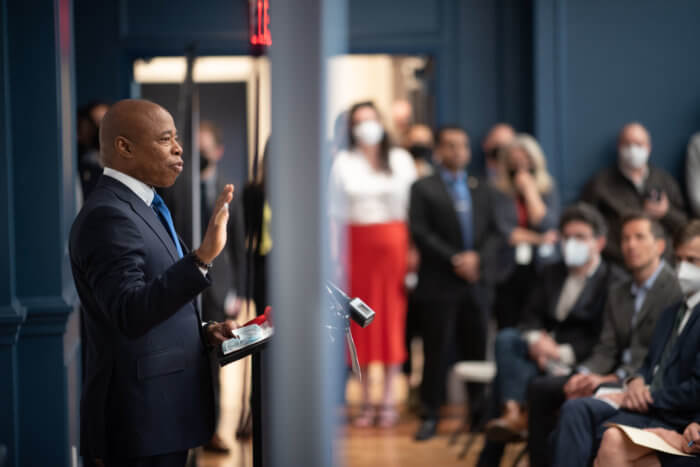
CONNECT is a one-stop model focused on holistic care of struggling New Yorkers by looking to bridge gaps in the mental health care system — moving beyond the traditional clinic role by focusing on collaborating with communities and responding directly to the root causes of mental health issues and addressing them all in one place.
Nine clinics in “high-need” areas of Brooklyn, the Bronx and Manhattan are taking part in the pilot program, and are currently accepting referrals. At full capacity, CONNECT is expected to serve up to 900 new clients with a broader range of services available to all patients at the clinics, according to officials.
Rather than focusing exclusively on identifying and treating symptoms, CONNECT clinics will consider the needs of the individual communities they serve and adjust their services accordingly — some may offer legal workshops or work to connect clients with community-based services and organizations who can help with legal advocacy, housing and job assistance, and food pantries.
“It can be difficult for someone to address their mental health needs if they are worrying about how they will eat that day, or where they will sleep that night,” said Acting Executive Deputy Commissioner of Mental Hygiene Dr. Michael McRae.
CONNECT is planned to count with a community liaison who will work on-staff at each clinic as a connection between the facility and the people it serves at large. Each liaison will help to identify the most pressing issues in each neighborhood and work to adapt the clinic’s services in kind —implementing walk-in services or getting people stepping down from more intensive treatment programs into the clinic immediately. However, the city is short of experts to take on this role.
“We hit a wall, right,” said Whitney Coulson, director of CONNECT. “We only had so many clinicians. We only had so much funding to be able to support the clients in our community, and there was a much greater need.”
The CONNECT concept is not a breakthrough. Other organizations have used the method for years, yet, experts are hoping that the city’s involvement will achieve a larger outreach and better opportunities for those involved both as patients and as staff.
“Mental health patients are waiting way too long to get the services they need,” agreed Liz Baracaldo, a Brooklyn-based pediatrician overseeing the Strong Children Wellness Organization (SCW), a network of advanced pediatric primary care which connects vulnerable families in undeserved communities to a range of social services. “We need mental health providers first.”
Before the pandemic spurred double-digit unemployment rates, poverty was on the decline. The 2013 poverty rate of about 20.7% went down to 17.9% in 2019 when 4.6 million jobs were active, and the minimum wage rose to $15 an hour. After peaking at 20.3% in June 2020, unemployment was at 9% as of November 2021 — more than twice the nationwide average.
“The common theme is trauma, neglect, physical or sexual abuse. Some parents are trying their best, but we live in community where it’s unsafe to go to the park and go to school or be outside,” she added. “Addressing that, connecting them to resources in the community will hopefully prevent the cycle from repeating. A lot of what we see is generational.”
According to Baracaldo, economic fear, the insecurity of not being able to afford groceries, transportation, education and other basic needs is a common trigger for many in Brooklyn.
“It’s very frustrating as a parent to try to navigate the labyrinth of services that are available,” Baracaldo told Brooklyn Paper. “Many of our parents work and they are not able to go a whole morning to apply, to just get to see someone and talk to them. That would cut into their income, into the money that they bring home. When we can streamline them and provide a one-stop way, we can get them the services they need.”
In late 2020, nurses at Brooklyn Methodist Hospital urged the hospital to reopen psychiatric units that had closed during the pandemic, saying the unprecedented year had exacerbated mental health issues in the borough and that patients were more in need of services than ever.
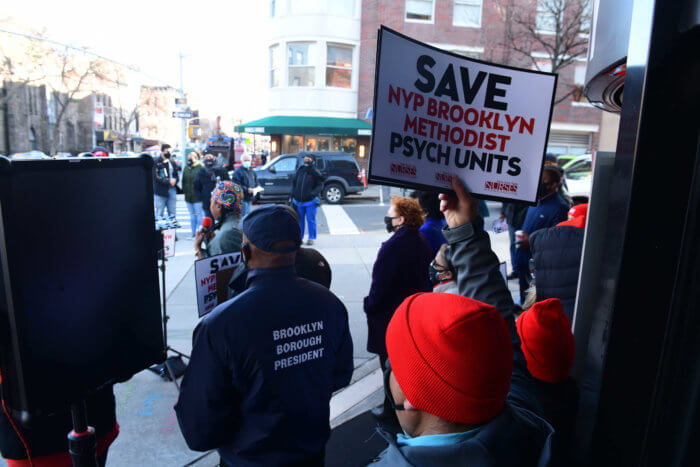
According to the United Health Foundation, New York State had about 330 mental health providers per 100,000 people in 2021 — a better average than the U.S. as a whole, which had an average of 284 providers per 100,000. But high costs and long wait times to get an appointment still make accessing care a challenge for many, and many providers offer specific services — the statistic includes psychiatrists, family and marriage therapists, clinical social workers, counselors, and more — not all of whom can provide a range of services to a range of clients.
In addition to providing a range of services on-site, CONNECT will seek to meet some New Yorkers in need of services where they are out in the community, setting up “interventions” at spaces like soup kitchens.
“Bringing mental healthcare to every New Yorker has never been more urgent,” said Tina Chiu and Jason Hansman, acting directors of the Mayor’s Office of Community Mental Health. “The CONNECT model will allow people who struggle with serious mental illness to receive treatment and support in the communities they know and trust.”






